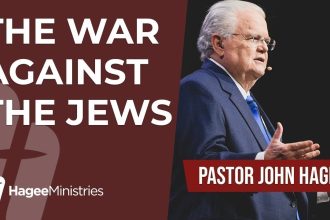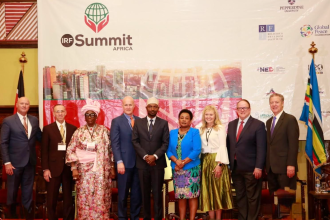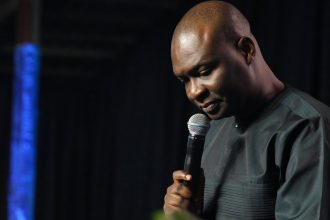This week—June 22 through June 29—the U.S. Conference of Catholic Bishops hosts Religious Freedom Week, calling attention to domestic issues that the bishops say threaten religious liberty. Among them: political polarization that has resulted in treating some of the church’s humanitarian outreach efforts, quite literally, as crimes and ongoing threats to the church’s historic role in U.S. health care delivery.
These are no doubt grave concerns, but the U.S. bishops would probably agree they are not akin to some of the existential threats to Christian expression and community happening in other places around the world. The bishops include two such sites in this week of reflection and action: Nicaragua and Nigeria.
In Nicaragua, the church has become, as the bishops described it this week, “the one remaining independent civil society institution in the country since the abolition of all political opposition parties and organizations in the country in 2021.” The bishops ask U.S. Catholics to remember their brothers and sisters in that nation, who “remain steadfast in their faith, and have, courageously, opted for the exercise of peaceful opposition to the unjust and against policies against the Church in Nicaragua.”
But as hard as the Ortega regime has been on the institutional church—the Society of Jesus, particularly—and Nicaragua’s Catholic community, very little in the contemporary global persecution of Christians compares to the relentless brutality experienced by Christian communities in Nigeria. A massacre of Christian villagers in Benue State this month is only the latest outrage.
Hundreds of people in Nigeria’s Benue State were slaughtered in a series of attacks beginning on June 8, culminating in a sustained assault on a church compound and a marketplace in Yelewata that claimed more than 200 lives. According to survivors, the raiders burned buildings while residents slept and attacked people with guns and machetes as they attempted to flee. The rampage began around midnight on June 13 and continued into the early morning hours.
Investigators from the Diocese of Makurdi came upon gruesome scenes in Yelewata, which had been left deserted after the violence. It was “not a sight for anyone to behold,” one told Aid to the Church in Need.
“Some [bodies were] burned beyond recognition—infants, children, mothers and fathers just wiped out.” Dozens of families were reportedly burned alive during the attack.
The raiders, identified as Fulani Islamist militants, had first been repelled by police after they attempted to overrun St. Joseph’s Church, where 700 people displaced by previous violence were sheltered. Most of the victims in Yelewata had been living in a camp for internally displaced people or in temporary shelters around the marketplace. This new disorder forced 6,000 more people to flee their homes, according to Nigerian officials.
Nigeria’s bishops called for prayer and solidarity with the victims in a statement released on June 19, deploring the continuing violence as a wound on the nation’s collective conscience. The bishops’ conference has provided emergency assistance to some of the hardest-hit communities in Benue State and promised that a delegation of bishops is preparing to visit the communities targeted by violence.
Though their plight was not included directly in this year’s observance of Religious Freedom Week, the remnant Christian community in Syria also endured a significant loss this month. In a grim reminder of the kind of senseless mayhem that plagued the nation during its unforgiving civil war, at least 25 people were killed on June 22 after gunfire and a suicide bombing interrupted Divine Liturgy at the Mar Elias Greek Orthodox church in the Dweila neighborhood of Damascus.
Syrian government officials blamed the attack on a sleeper cell of the Islamic State. It was the first such attack in years and comes as a transitional government led by former Sunni rebels seeks to establish control over a fragmented Syria. Nearly 14 years of civil war ended last December when the Hayat Tahrir al-Sham forces, a group with roots in Al Qaeda, in a surprise offensive, put an end to decades of al-Assad family rule.
The United States has thrown its support behind the transitional government, and some U.S. military forces remain on the ground in Syria, where they assist Kurdish fighters in containing the Islamic State, also known as ISIS. Before the suicide bombing, the Pentagon had announced plans to reduce the U.S. footprint in Syria by about 50 percent, but the recent attack may require a reconsideration of the U.S. troop drawdown.
Navy Vice Admiral Brad Cooper is set to become the next head of the U.S. Central Command, which directs U.S. military operations throughout the Middle East. Speaking during his confirmation hearing on June 24, he told the Senate that the Islamic State remains a threat, advising that a U.S. presence must remain in Syria to confront a possible resurgence of the Islamist extremists who once terrorized the region.
Pope Leo has offered expressions of sorrow and concern related to the attack on Mar Elias and on June 25 he wrote on the social media platform X:
We entrust the victims of the vile terrorist attack on the Greek Orthodox community of Mar Elias Church in Damascus to God’s mercy, and we offer our prayers for the wounded and their families. I say to the Christians of the Middle East: I am close to you! The whole Church is close to you! Let us not ignore #Syria, but continue to offer our support through gestures of solidarity and a renewed commitment to peace and reconciliation.
The pope had also taken note of the suffering of the Christians of the Eastern churches just last month, asking: “Who, better than you, can sing a song of hope even amid the abyss of violence?”
In his address to participants in the Jubilee of Oriental Churches, he added, “I thank God for those Christians—Eastern and Latin alike—who, above all in the Middle East, persevere and remain in their homelands, resisting the temptation to abandon them. Christians must be given the opportunity, and not just in words, to remain in their native lands with all the rights needed for a secure existence.”
The exodus of Christians from the Middle East has been accelerating since the Islamic State began its bloody campaign to create an Islamic caliphate across Syria and Iraq. By some estimates, fewer than 150,000 Christians remain in Iraq—once home to many millions of Chaldean and Orthodox Christians—and as few as 300,000 carry on in Syria, where before the civil war began in 2011, 1.5 million Christians constituted about 10 percent of the population.
Pope Leo also commented on the attacks in Nigeria on June 15, praying for “security, justice and peace” in that country, adding that he was thinking in particular of the “rural Christian communities of the Benue State who have been relentless victims of violence.”
To critics of the Nigerian government, the massacre at Yelewata is just the latest evidence of its inadequate response to escalating extremist violence in that country’s Middle Belt region, which has claimed more than 53,000 Christians and more than 30,000 Muslims since 2009. There had been some hope that Nigeria’s new president, Bola Tinubu, would more aggressively address insecurity in Nigeria, particularly the violence of Fulani herdsmen, Boko Haram and Islamic State West Africa Province terrorists. Mr. Tinubu—who called the recent upsurge in attacks “depressing”—is scheduled to travel to Benue on June 25 in what will be his first visit to the troubled state since his election two years ago.
TruthNigeria, a local independent media outlet, spoke with Abubakar Aldo, a counterterrorism scholar based in the Nigerian capital city of Abuja. Mr. Aldo complained that the government continues a policy of denying the religious dimensions of such attacks, most orchestrated by Muslim members of the Fulani tribe, who are primarily herders and pastoralists, against Christians and moderate Muslims in agrarian villages.
“This is no longer about rural insecurity. It’s systematic ethnic cleansing, and the refusal to designate the Fulani ethnic militias as terrorists is state-enabled impunity,” Mr. Aldo said. He told TruthNigeria: “Fulani militias are carrying out what many locals describe as ‘slow genocide.’” The Nigerian government is not alone in its reluctance to characterize years of attacks on Christian farmers in the Middle Belt region, which lies between the nation’s predominantly Muslim north and its Christian south, as expressions of sectarianism or ethnic cleansing. Much to the consternation of global activists who seek to protect Nigeria’s Christians, the Biden administration removed Nigeria in 2021 as a “country of particular concern” from the U.S. State Department’s annual report on religious freedom and the persecution of religious minorities. They are pressing the Trump administration now to restore that designation.
Though other factors are surely at play, like the region’s increasingly arid conditions and competition over land and water resources, church leaders in Nigeria insist the attacks are part of a systematic campaign to drive Christians from the region or force their conversion. Their frank talk has been greeted with resentment by some members of the government and among the Nigerian general public.
But in an editorial published by the Nigeria Catholic Network, the Catholic Secretariat of Nigeria warned that the nation’s dire conditions are only “further worsened” when “voices that have dared to cry out for justice have been hounded and intimidated.”
The editorial continued: “Bishop Wilfred Chikpa Anagbe of the Catholic Diocese of Makurdi has become a thorn in the conscience of the nation—not because he lies, but because he dares to tell the truth [about interreligious violence]. He has persistently raised the alarm, documented the horror, and exposed the government’s silence.”
Further: “For his courage, he has received threats. But his voice echoes the long-suffering cry of his people. He has publicly declared that the killings are not random but part of an orchestrated attempt to exterminate the indigenous people of Benue from their ancestral lands. He is not alone.”
More from America
A Deeper Dive
The Weekly Dispatch takes a deep dive into breaking events and issues of significance around our world and our nation today, providing the background readers need to make better sense of the headlines speeding past us each week. For more news and analysis from around the world, visit Dispatches.





